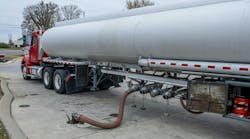KPMG said in its 2002 Survey of Economic and Capital Market Expectations that economists and financial analysts expect the U.S. stock market will be more in line with historical trends this year, producing single digit returns. KPMG added that its annual survey interviews economists and investment strategists at 41 leading international financial institutions and investment organizations.
"As the economy rebounds from last year's recession, gross domestic product (GDP) and consumer price index (CPI) figures point to further economic growth this year with low inflation, and then accelerating growth with increasing inflation during the next decade," said Neil Wolfson, the KPMG partner in charge of the survey.
In 2002 and during the next five years, emerging market equities are expected to produce the highest rate of returns among all asset classes, earning 15% this year and 12% over the five-year period, according to the survey's projections. In the U.S., venture capital investments should be the best performers, the survey showed, earning 10% during the next 10 years.
However, interest rates are predicted to rise, with short-term rates projected to jump to 3% in 2002 and to 4.5% by 2006. Rates are expected to rise across the entire Treasury curve with the 30-year bond yield seen at 5.6% in 2002, and rising to 6% by the end of 2006 and 2011.
The survey also found that economists feel that the federal budget, after enjoying budget surpluses in recent years, will have a projected deficit of $87.5 billion for 2002, decreasing over the next five- and ten-year periods to $75 billion and $50 billion, respectively.


